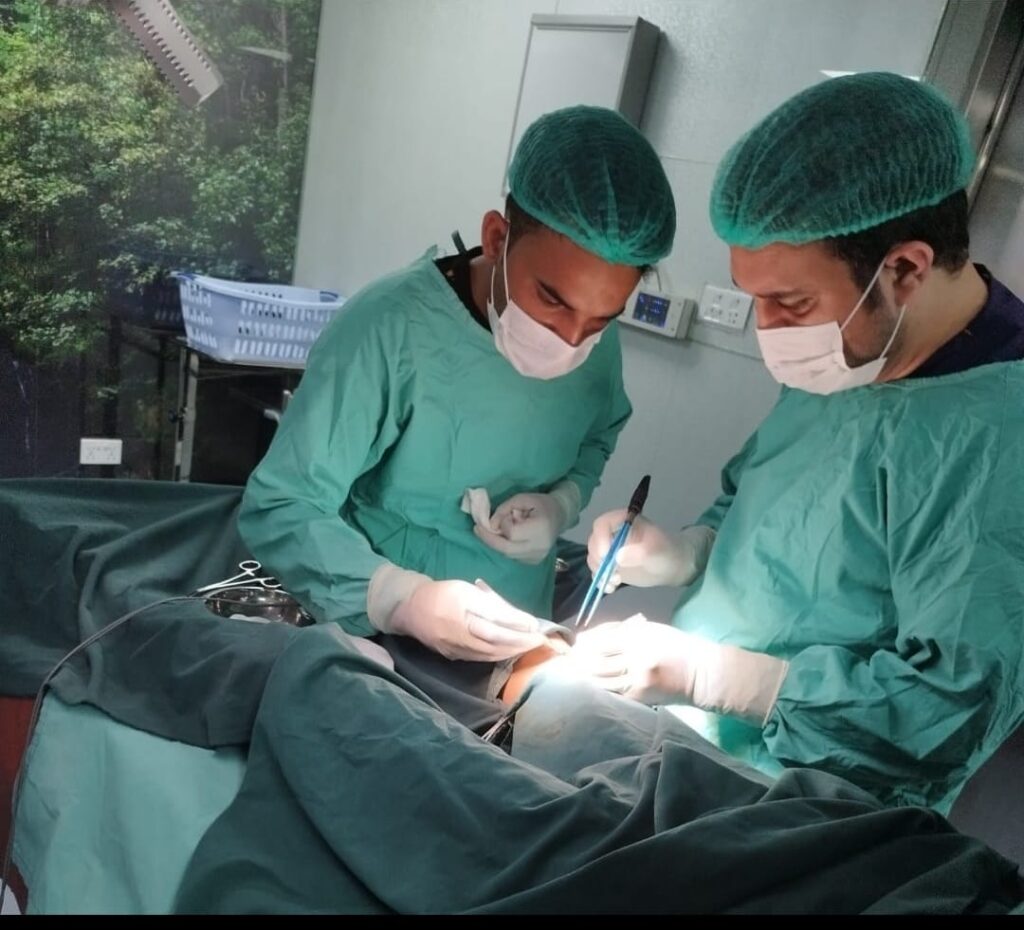- contact@laparoscopyadvice.com
- General Practice Hospital, G-9/2 Islamabad
- Mon - Fri: 10:00 am - 7:00 pm
Visiting Hours
| Mon - Fri: | 8:00 am - 8:00 pm |
| Saturday: | 9:00 am - 6:00 pm |
| Sunday: | 9:00 am - 6:00 pm |
Gallery Posts






| Mon - Fri: | 8:00 am - 8:00 pm |
| Saturday: | 9:00 am - 6:00 pm |
| Sunday: | 9:00 am - 6:00 pm |







Introduction
Liver abscess, though relatively uncommon, poses a serious threat to liver health. This article aims to shed light on the intricacies of liver abscess, from its definition to preventive strategies and available treatment options.
What is a Liver Abscess?
A liver abscess is a pus-filled cavity within the liver, often resulting from an infection. While it can be caused by various factors, prompt recognition and treatment are crucial for preventing complications.
Different Types of Liver Abscess and Their Causes
?
Exploring the different types of liver abscess, such as pyogenic and amebic abscesses, provides insights into their distinct causes and potential sources of infection.
Causes and Risk Factors
Understanding the factors contributing to the development of a liver abscess is essential for prevention. This section explores common causes and identifies individuals at a higher risk.



Identification of Individuals at a Higher Risk
Highlighting risk factors, such as underlying health conditions and lifestyle factors, enables individuals to assess their susceptibility to liver abscess.
Signs and Symptoms
Liver abscess often presents with non-specific symptoms, making early detection challenging. However, recognizing common indicators and variations in symptoms based on abscess size and type is crucial for prompt medical attention.
Variations in Symptoms Based on Abscess Size and Type
Distinguishing between symptoms based on the size and type of liver abscess assists healthcare professionals in tailoring appropriate diagnostic and treatment plans.
Diagnosis
Accurate diagnosis of a liver abscess involves imaging studies, blood tests, and clinical evaluation. This section explores the diagnostic procedures and emphasizes the role of medical professionals in this process.
The Role of Medical Professionals in Accurate Diagnosis
Underscoring the importance of seeking professional medical advice ensures individuals receive proper diagnosis and timely intervention.
Treatment Options
Managing a liver abscess involves a combination of conservative and surgical approaches. Exploring these options and their considerations helps individuals make informed decisions about their health.
Surgical Interventions and Their Considerations
Delving into surgical interventions and the factors influencing their suitability provides a comprehensive view for those facing treatment decisions.
Prevention Strategies
While not all liver abscesses can be prevented, certain strategies can reduce the risk of their development. This section outlines steps individuals can take to maintain liver health and minimize the likelihood of abscess formation.
Impact on Liver Function
Understanding how a liver abscess can affect liver function is essential for individuals managing this condition. Exploring long-term implications and considerations guides individuals in making informed choices about their health.
Long-Term Implications and Considerations
Discussing the potential long-term impact of a liver abscess provides individuals with a comprehensive understanding of their condition and motivates them to adhere to treatment plans.
Comparison with Other Liver Conditions
Distinguishing between a liver abscess and other liver conditions, such as hepatitis or liver tumors, is crucial for accurate diagnosis and appropriate treatment. This section explores the similarities and key distinctions between these conditions.
Coping with the Diagnosis
Receiving a diagnosis of a liver abscess can have emotional and psychological implications. This section discusses coping strategies and the importance of support networks for individuals facing this medical challenge.
Support Networks and Resources Available
Providing information on available support networks and resources ensures individuals do not face the challenges of a liver abscess alone.
Frequently Asked Questions (FAQs)
While poor hygiene can contribute to the development of a liver abscess, various factors, including underlying infections, play a role. Maintaining good hygiene is essential for prevention.
Surgery is one option, but smaller abscesses may be treated with antibiotics. The choice depends on factors such as abscess size, type, and individual health.
In some cases, especially if not treated promptly, a liver abscess can contribute to complications that may affect liver function. Regular medical follow-ups are crucial.
No, a liver abscess itself is not contagious. However, the infections that can lead to a liver abscess may be contagious. Maintaining proper hygiene helps prevent these infections.
Vaccination against specific infections, such as those caused by bacteria or parasites, can reduce the risk of liver abscess. Consultation with a healthcare provider is recommended.
Conclusion
In conclusion, navigating the challenges of a liver abscess involves understanding its nature, recognizing symptoms, and adopting preventive measures. By fostering awareness and seeking timely medical attention, individuals can effectively manage this potentially serious condition and safeguard their liver health for the long term.
| Mon - Fri: | 9:00 am - 7:00 pm |
| Saturday - Sunday: | Off |
Copyright 2023 Adil's Laparoscopy World | Powered by Dynaamx